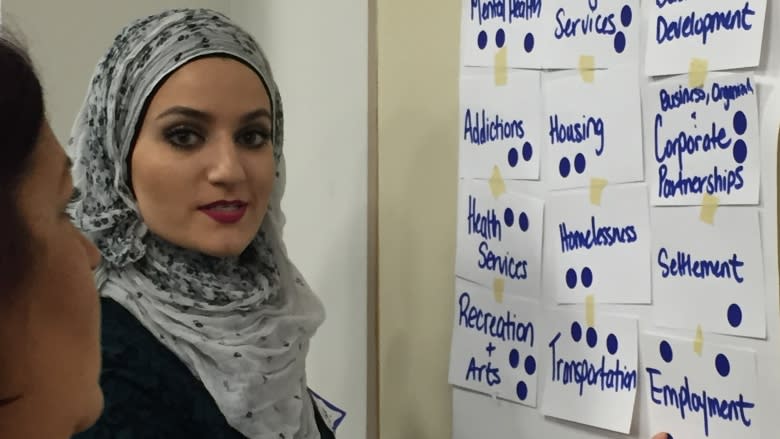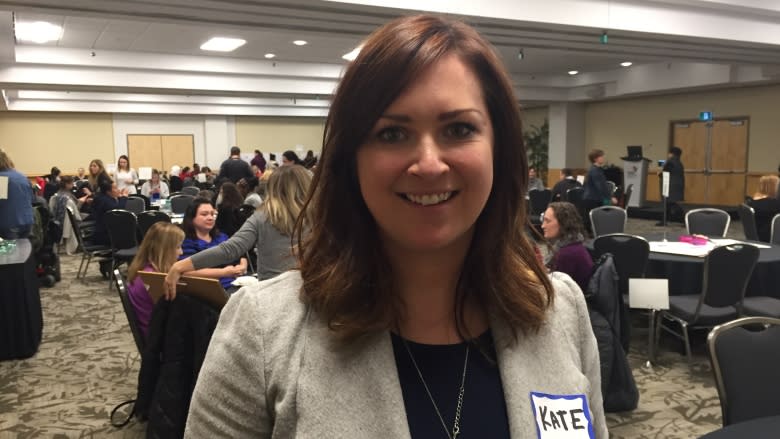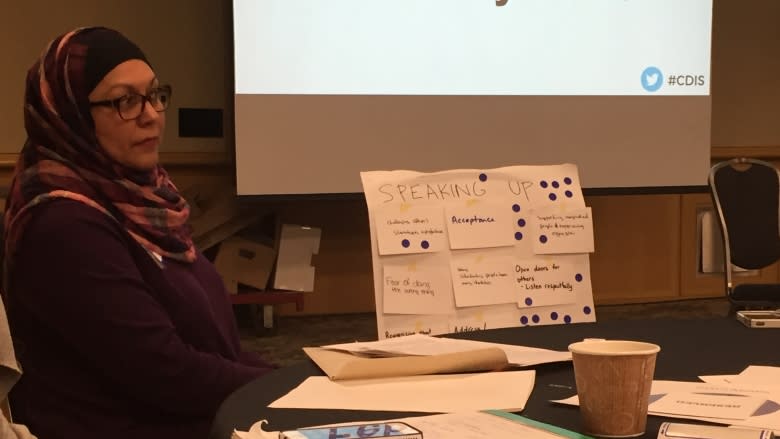People, not politicians, to tackle diversity in London, Ont.
Gurmeet Malhotra was one of 200 people circling a London Ont. conference room sticking dots onto construction paper taped to the walls one Saturday morning in February.
The activity looks similar to child's play, but words like "mental health" and "settlement" are reminders that this is serious work with potentially important implications for the city.
"I represent diversity and this was a wonderful opportunity for my voice to be heard," said Malhotra, a high school teacher who came to Canada seven years ago from India.
The city is looking to build a new diversity strategy, one that comes at a time when publicly reported acts of hate and discrimination are on the rise.
City council is committed to ending intolerance and, in a unique move for London, it did not ask politicians or advocacy groups to come up with solutions. Instead, it offered the job to the public.
Hundreds of residents applied to be "diversity champions," the title assigned to people chosen to sit on the unique committee. A web site was built to encourage greater participation.
"Sometimes when we start these processes we have no idea if five or 10 people are going to show up," said Kate Graham, the city's community and economic innovation director. "We're not going to face issues of diversity and oppression within city hall, which is why Londoners need to be involved."
Action not words
People of all ages and backgrounds have dedicated three days to developing the diversity and inclusion strategy, a report expected to go to city council in late March.
It's a massive undertaking covering a wide range of issues, including religious, racial and sexual diversity, disabilities, hiring practices and immigration services.
"I feel confident this report is not going to get shelved to collect dust," participant Bharati Sethi said.
Sethi, a newcomer to London who immigrated to Canada 20 years ago, is recommending London implement a "welcome wagon" to help new arrivals better acquaint themselves with local services and customs.
Others suggest creating a system to help employers learn about foreign qualifications, as well as an awareness campaign to end the stigma people with accents say they feel when they apply for jobs.
First Nations, accessibility part of strategy
London has three First Nation territories in the region — Chippewa of the Thames, Munsee Delaware and Oneida — and aboriginal participants are happy to be included in the diversity strategy, suggesting there are new ways to develop relationships.
"We're 20 km away and people don't even know we're there," Ramona Sault from Chippewa said. "It could be as simple as giving streets and parks Anishinaabe names."
The diversity strategy will also take into consideration accessibility concerns with some suggesting London doesn't have enough wheelchair transit or snow-clearing services to properly include disabled residents.





